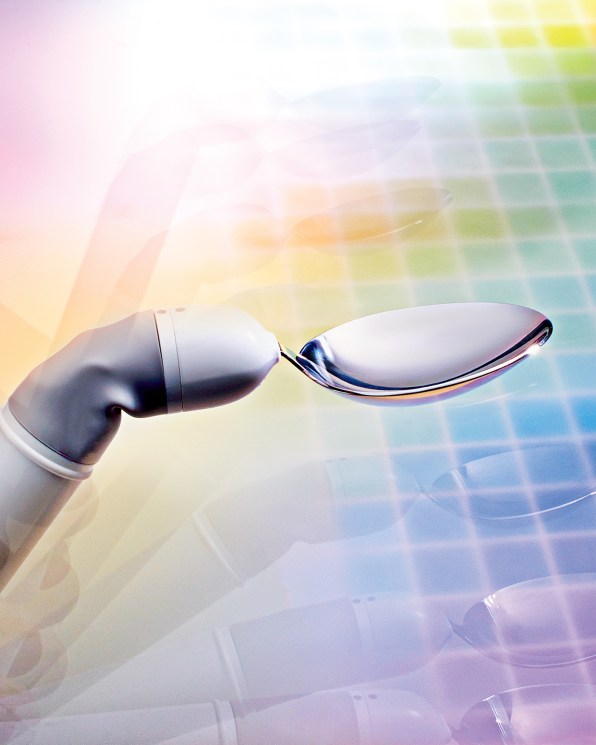Liftware Level, a smart utensil, delivers both food and freedom.

Fork It Over. [Photo: Will Anderson]
Stefanie Putnam smiles broadly as she eats a spoonful of rice in the cafeteria at Verily, the Alphabet-owned life-sciences research firm. She’s here to demonstrate the Liftware Level, a smart utensil designed to help people with movement disorders, such as spinal cord injuries and cerebral palsy, feed themselves without help from a caretaker.
The spoon works by responding to the user’s involuntary actions. As 32-year-old Putnam, who was partially paralyzed in a swimming accident eight years ago, raises the device, sensors in the handle trigger two motors located near the spoon attachment. The motors give the spoon motion, allowing it to bend and twist to stay level and keep food from falling. Putnam can also convert the spoon into a fork using a different part. Anupam Pathak, Verily’s technical lead and manager of the Liftware project, says his team is expanding the concept to address additional tasks; new extensions could help with hair brushing or painting. He’s even issued a challenge to Alphabet employees to prototype their own add-ons. “With technologies like 3D printing, we can rapidly test an idea,” he says. “We want people to build off of what we have.”

As for Putnam, the device has opened up new possibilities. Recently, she asked her father if she could feed him for a change. “I took the spoon and started taking the coffee out of his cup,” she says. “It dawned on me in that moment that I could have a family. I could have children someday and be able to take care of them.”
–
This article first appeared in www.fastcodesign.com
Seeking to build and grow your brand using the force of consumer insight, strategic foresight, creative disruption and technology prowess? Talk to us at +9714 3867728 or mail: info@groupisd.com or visit www.groupisd.com
